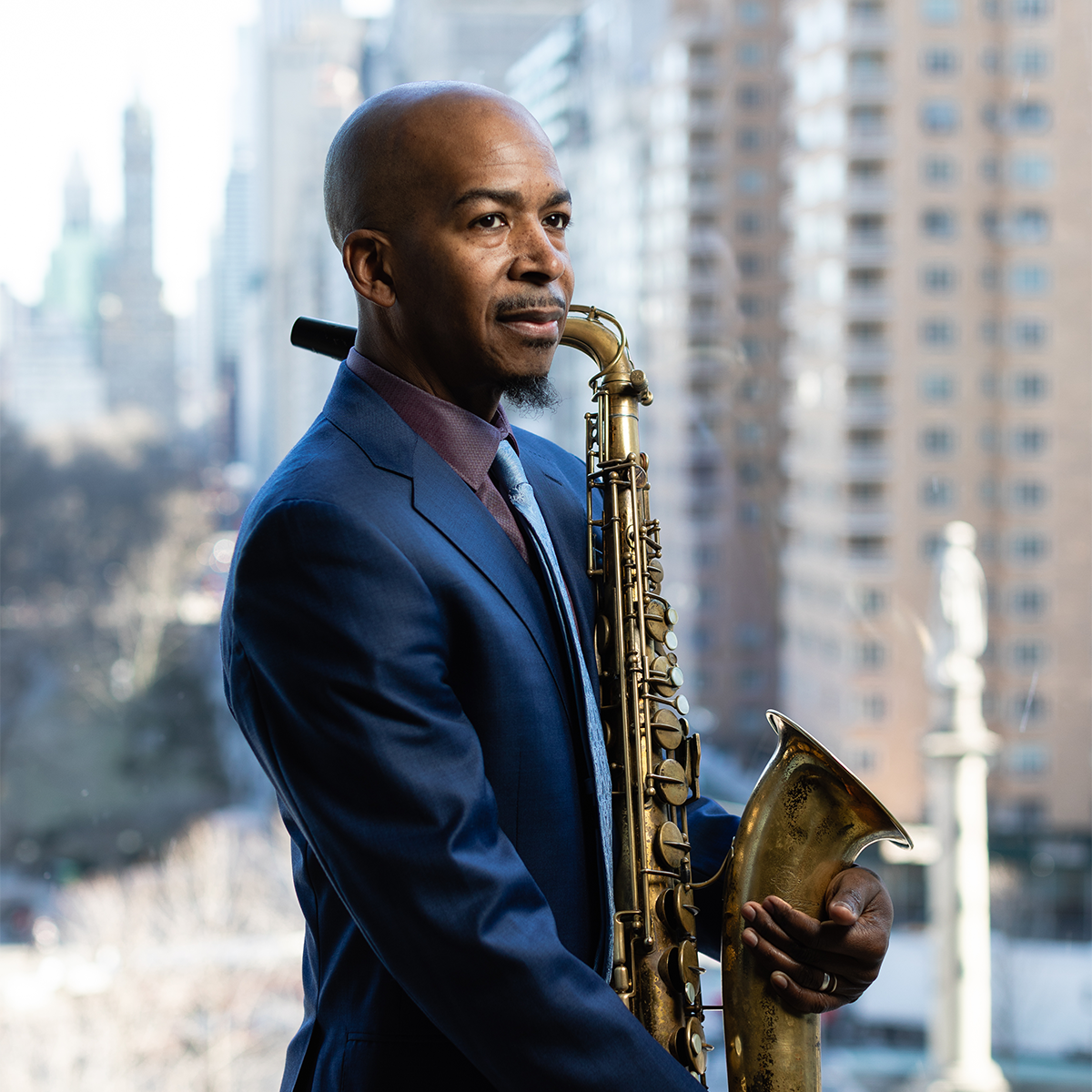KNOXVILLE, Tenn. – University of Tennessee School of Music Associate Professor Gregory Tardy has a rather unique proposition. He is writing music inspired by classical literature.
Or rather, a specific work of classical literature. He is currently writing a suite inspired by themes from the classic allegorical work Pilgrim’s Progress. Originally published as The Pilgrim’s Progress from This World, to That Which is to Come in 1678, the work is considered one of the most significant religious allegories in the English language. The suite will not be a soundtrack, he says, but will use music to capture particular moments from the book and explore the themes that are embedded there. Tardy sees the themes of the book as deeply tied to what has inspired him throughout his musical career, particularly in the music that we currently call jazz. He credits famed tenor saxophonist John Coltrane with inspiring much of his musical journey, as well.
“Those that have followed my career will notice a lot of spiritual themes in my music throughout the years,” he said. “I was very touched by this particular novel, and it has so many rich themes. I think that even people who don’t share the same faith can identify a lot with these same themes.”
In his pursuit of the project, which he started writing at the beginning of the pandemic, Tardy has been named a recipient of the Jazz Road Creative Residencies Grant, which aims to remove financial barriers that prevent musicians from investing deeply in their artistic endeavors. Jazz Road is a national initiative of South Arts, which is funded by the Doris Duke Charitable Foundation with additional support from The Andrew W. Mellon Foundation.
If you ask Tardy about his creative process, a theme quickly emerges – it is constant. Whether he’s sitting down for a formal writing session or not, he’s always listening for a new idea.
“I try to leave myself open for what’s happening around me,” he said. “Sometimes when I’m walking down the street, I’ll hear something that strikes me, and I’ll get out my phone and record it. I have probably 100 or more recordings on my phone, and before smartphones, I would carry around a recording device. Before that, I would write on scraps of paper, and that’s the way I’ve done it for years.”
In some ways, it’s difficult to pinpoint the beginning of Tardy’s musical career. The son of two opera singers, he was exposed to various styles of music early on, and began his work as a clarinetist. While in the school stage band, he was exposed to the saxophone, but wouldn’t return to it until after he had become a classically trained clarinetist.
“The thing that changed everything was my band director recommended me for a gig playing saxophone in a polka band,” he said. “I also started really wanting to play this music that we call jazz and began practicing for eight-plus hours a day.”
He continued this level of hard work and commitment throughout the rest of his career, which included 15 years working as a professional musician in New York before coming to the University Tennessee 11 years ago.
As for this particular suite, Tardy anticipates performing the music around the end of March 2022, as well as leading a masterclass for University of Tennessee music students around that same timeframe.

